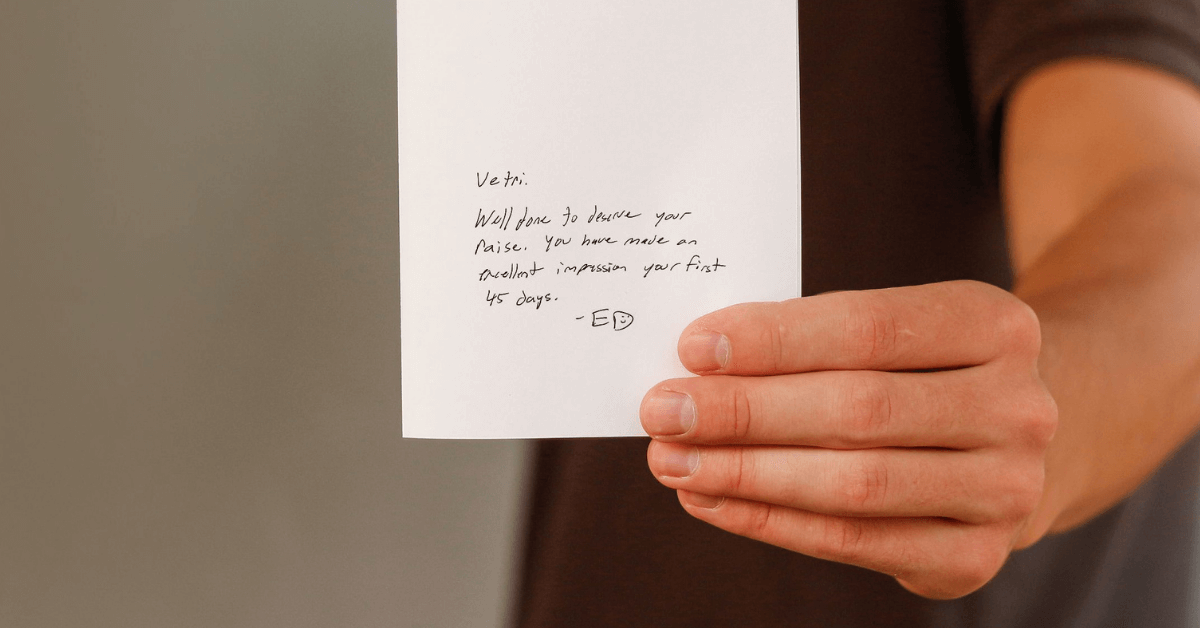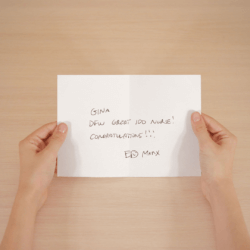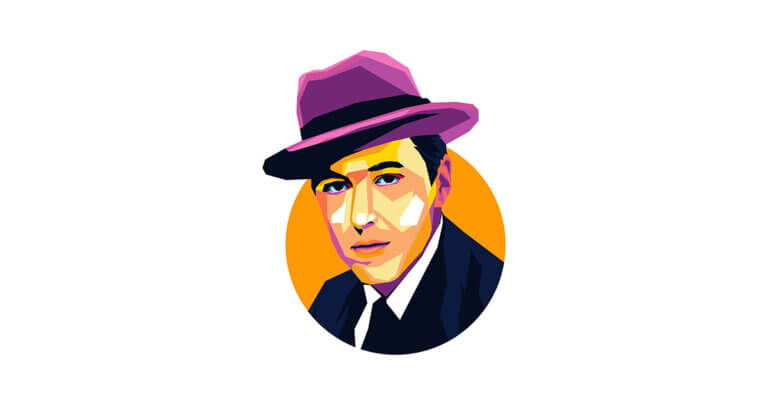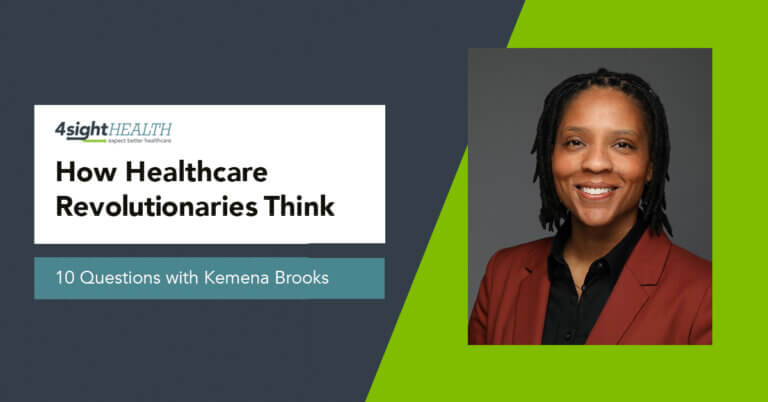March 2, 2021

The Lost Art of Handwritten Thank You Notes
A simple thing I learned young continues to shape my life. It will shape yours also. I write handwritten thank you notes.

As a boy, mom made us sit down the day after Christmas and birthday and write notes to every gift giver. We could not continue to play with our gifts until we did. It stuck. My kids do the same.
It’s worth rediscovering this lost art. Let me convince you with stories, then share ideas you can use.
Love Found
I began to court a nurse named Simran. She was a long shot. The most beautiful woman ever. Word of her potential suitor, a former executive of the health system, leaked amongst the nurses.
Gina, a fellow nurse and long-time friend, pulled Simran aside. She showed Simran this card she received from me a few years prior. Dallas-Fort Worth recognizes the “Top 100” nurses each year in the cities and I made it a habit to write a thank you card to each winner. My stock went way up and I got that next date!
Best Gift
Simran and I spent some time in the Galapagos recently, leaving our 17-year-old daughter Shalani at home. We returned with requisite gifts for friends and families. We were chatting together at dinner when Shalani shared that her favorite gift was all the little handwritten cards I hid around the house for her to find unexpectedly. She would rather have these love notes than a turtle earring or Galapagos hoodie, although the hoodie was a close second.
Humility

One of our chief nursing officers, never nominated for Miss Congeniality, rushed me. Smiling on the outside, I braced for impact. Extending my hand in greeting, she head faked and went straight for a hug.
After she released the embrace she said:
“Ed, you sent me a thank you card for my Top 100 nurse recognition. I was like ho-hum. But when I walked into the med-surg nurses’ lounge, I was caught off guard. A card you sent to one of our floor nurses, also Top 100, hung on our community board.”
Continuing: “I tracked the med-surg nurse down to ask about the card. She was blown away that a non-nursing executive took time to acknowledge her contributions. It means a bunch to her, to me, and her peers who see the card.” Then the CNO chided me for forcing her to change her password every six months.
Reward
I mentioned the concept of thank you cards on LinkedIn recently, and Vetri commented on it. Vetri served with me first as a graduate intern and then full-time upon his graduation. At some point I sent him a card saying thanks for his excellent work. 15 years later, Vetri still has it and shared a picture of it on my LinkedIn post.
Empathy
My first guest on my new DGTL Voices podcast is patient advocate and triple threat, Stacy Hurt. Stacy, a cancer survivor, caregiver, and healthcare executive, says the best thing you can do when someone shares their cancer diagnosis is send a hand-written note. It shows love and care far beyond a text.
Culture
My first platoon sergeant, a tough Vietnam vet, said, “Lt. Marx, I was like ‘What the sh*t? I am just doing my job.’ Then it hit me: Leaders do the little extras. I never received a card from a superior officer. So I just sent short notes to my squad leaders.” Felt like our entire platoon took it up a notch after this.
I was rounding with nurses in one of our hospitals when one approached me during a break. “Oh, you’re Ed Marx? We’ve never met, but you sent me a card two years ago for working with your team on an order set. Thank you for noticing and sending the card.”
Differentiate Yourself

Thank you card sales hit an all-time low. Digital convenience displaced some of the need, but I think the reason goes deeper. We are just plain lazy.
Since handwritten cards are rare, their impact is magnified. People still love to receive personalized mail. You can open a card and hang it in your office or place it on a desk. You can touch it, smell it, hold it to your chest.
What’s the best virtue of handwritten notes? They don’t beg for a response like email. You send an email thank you, and the person now feels obligated to reply—“Back at ya.” Doesn’t that defeat the purpose?
Techniques
Make it easy to say thank you.
- Have a stash of cards and when you hear of a deserving act, whip one out. The five minutes you spend writing will bring a day’s worth of happiness to someone.
- Write cards with your leadership team. Pre-COVID, this was a standing agenda item at our weekly meetings. There is always
someone deserving of praise. - When you hear of someone who receives an honor, internal or external, send a card.
- After concluding a meeting during which someone went above and beyond, start writing.
- Each Friday, a task pops up on my schedule saying, “Give Thanks.” I reflect on the week and decide who to thank. Then I write a note.
I don’t store paper anymore, except the thank you cards I’ve received over the years. I can’t toss them. They carry such meaning. They are an oasis in the dessert. A salve on a wound and the bridge over a chasm. They can make our toils worthwhile.
For whom are you thankful? Staff, boss, a peer? Family? Take action. Grab a card now and share your thoughts with that person. If your handwriting sucks, don’t worry, mine does too.
You know who sent me a thank you card this week? Simran 🙂





